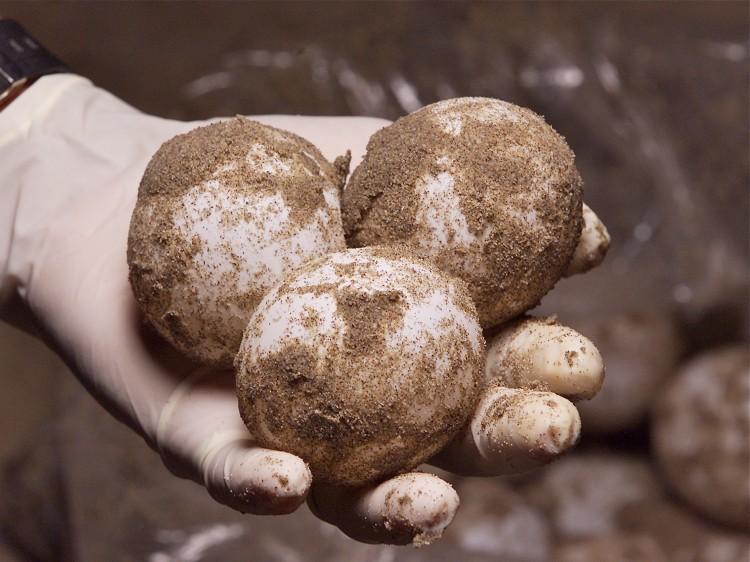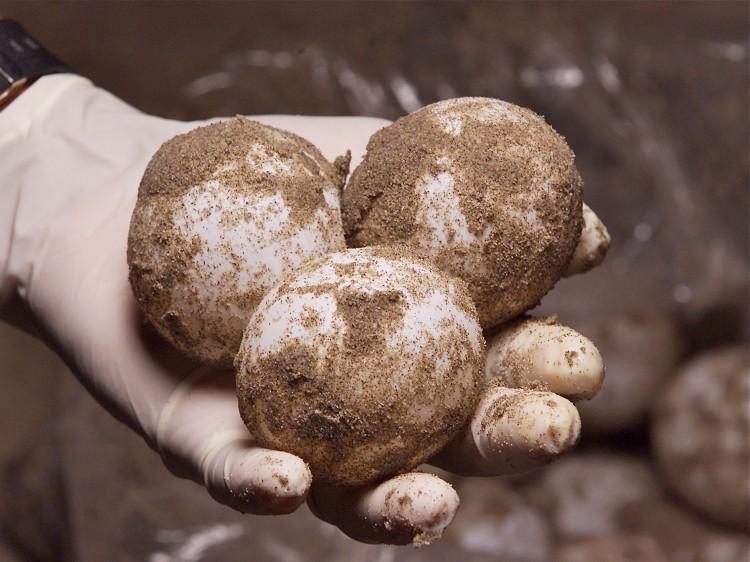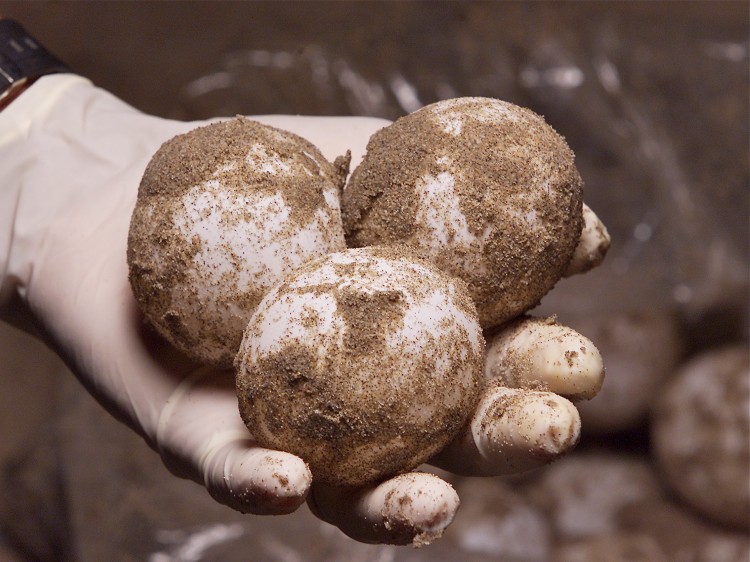Thousands of endangered sea turtle eggs were crushed by heavy machinery on the Caribbean island of Trinidad.
Eggs belonging to leatherback sea turtles, which are considered a critically endangered species, fell victim to bulldozers and excavators over the weekend, according to the Papa Bois Conservation group’s Facebook page. The group called the deaths “unnecessary” and blamed the incident on a “lack of leadership” and not on the operators of the equipment themselves.
The group published photos showing what appear to be broken eggshells on the beach near heavy machinery.
“Unfortunately the engineers in charge bulldozed a far greater portion of beach than necessary, and they did destroy many viable nests,” the group said.
The workers who inadvertently destroyed the eggs were attempting to divert the nearby Grand Riviere.
“They were told to divert a river, and that’s what they did. Who are to blame are those ‘higher up,’ not one of whom was on site to make sure the works were done with as little damage as possible,” the group added.
A member of the Grand Riviere Environmental Organization, Sherwin Reyz, told The Associated Press that as many as 20,000 eggs were crushed, eaten by vultures, or consumed by stray dogs that congregated on the beach to eat the remains.
“They had a very good meal. I was near tears,” said Reyz.
The Papa Bois Conservation group said that the beach in Trinidad is the most densely populated leatherback hatching area in the world, and it is unknown how severely the incident will affect the species’ population.
The Epoch Times publishes in 35 countries and in 19 languages. Subscribe to our e-newsletter.






